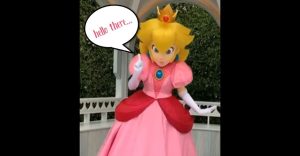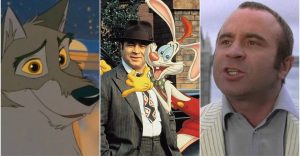Why Christopher Nolan Took 9 Years To Make Inception

Why did Inception take Christopher Nolan so long to make? It’s no exaggeration to say that Christopher Nolan has a filmography many directors would give an arm or leg for. Thanks to the likes of Memento, the Dark Knight trilogy, Interstellar and Dunkirk, Nolan is widely regarded as one of the defining directors of the modern era. And once Nolan and Warner Bros. can navigate the coronavirus pandemic and release Tenet, a new jewel may well be added to that crown. Despite those famed titles, one of Christopher Nolan’s most revered efforts is Inception, starring Leonardo DiCaprio as a dream thief who infiltrates his victims’ minds to extract information.
As the premise implies, Inception is a mind-twisting adventure through reality, dreamscapes and multiple layers of illusion. The iconic shot of a city street bending upwards into a 90 degree angle is now a legendary cinematic image, and fans still debate the ambiguous final shot of Dom’s totem a decade later. While The Dark Knight may be his biggest hit, Inception, as an original story, is arguably the film that will most heavily define Nolan’s legacy. It doesn’t take an astute studio executive to see the creative potential and epic scale in the Inception concept, but even though Nolan struck storytelling gold with his tale of lucid dreaming meets corporate espionage, it took the auteur nine years to make Inception a reality after delivering the first pitch.
It’s not unusual for filmmakers to develop their stories over the course of several years and, sure enough, Nolan worked on early drafts of what would eventually become Inception around the turn of the millennium in 2000, a full ten years before the project eventually saw the light of day. However, once a movie pitch is successful, development usually begins in earnest with script writing, pre-production and casting. Unusually, Nolan pitched Inception to Warner Bros. as early as 2001. Despite this initial interest, Nolan later claimed (via NYTimes) that he “wasn’t really ready to finish it” and “needed more experience in making a big movie.“

Nolan recounts that as a budding director early in his career, he tried to scale down Inception, assuming he would be forced to work with a small budget. He soon came to realize that a movie taking place primarily inside the human mind called for some hefty bankrolling in order to execute properly, so held off on the idea and started Batman Begins instead. Nolan’s experience with DC served a dual function – giving the director the knowledge and tools required to make movies on a far bigger scale than he had done previously, while also bolstering his reputation in order to secure the budget required to do justice to Inception. Some filmmakers work on multiple projects simultaneously and might’ve started scripting Inception while shooting The Dark Knight, but Christopher Nolan has always been a one-project-at-a-time kind of artist.
Of course, Nolan’s increased stock in the movie industry also meant more jobs kept landing on his desk, and moving from Batman Begins to The Prestige to The Dark Knight meant Inception was only subjected to more time on the back-burner. Finally, with multiple blockbusters and a record breaking superhero movie to his name, Nolan and Warner Bros. began developing Inception properly in early 2009 ahead of a 2010 release. The prospect of an early 2000s, low budget Inception is a fascinating one, if only out of morbid curiosity, but with the finished product wowing audiences with spectacular visuals, nuanced storytelling and head-scratching science fiction themes, it’s easy to see where that added experience and bigger budget came into play. Inception surely wouldn’t have been as successful without those nine years spent building up to the momentous challenge Nolan’s dream-stealing concept presented.
About The Author


















